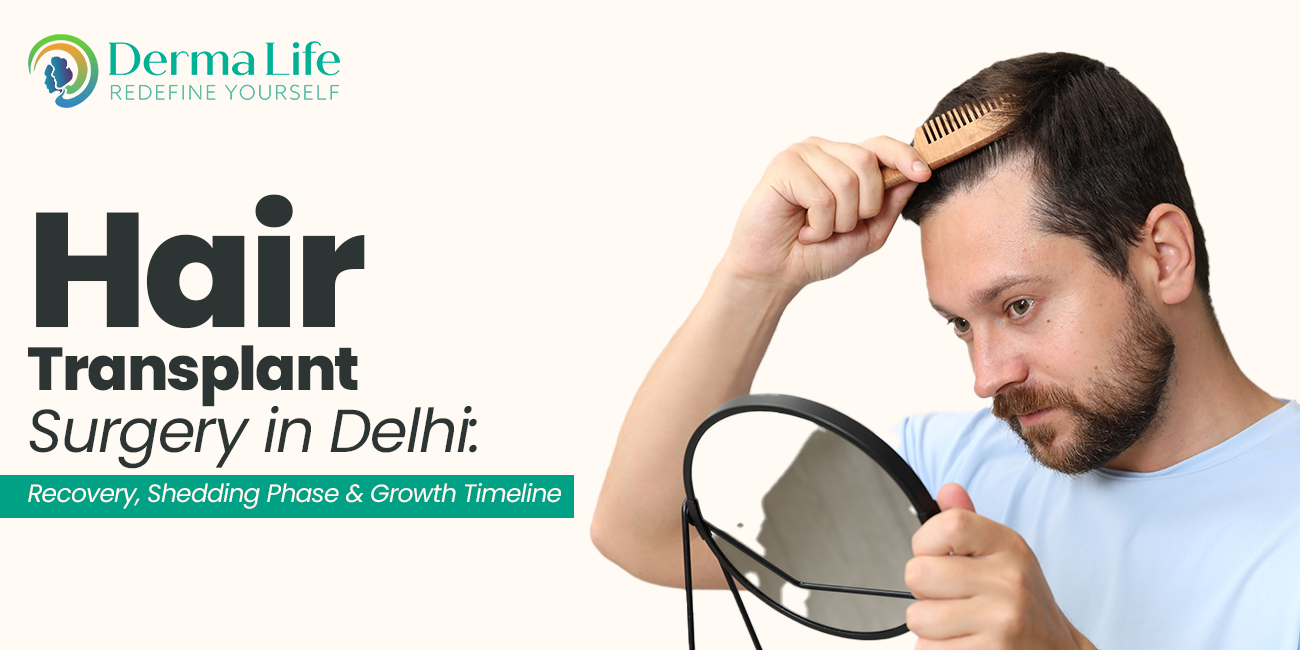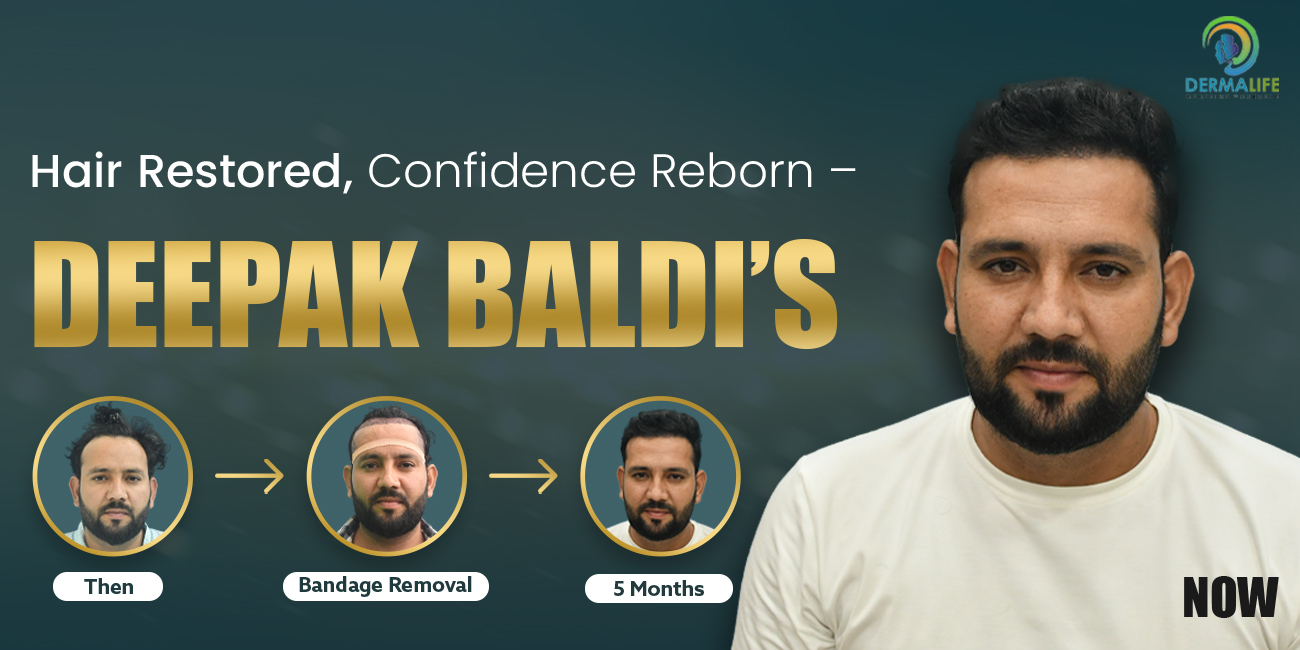Your look and confidence have a lot to do with the nature of your hair. Not only does your hair enhance your facial aspects, but it also boosts your self-esteem. For many people, having thick, luscious hair is a dream come true. For this reason, the beauty industry is attracting customers by offering lustrous and dazzling hair care products. As surprising as it may seem, most hair care products fail to address the root cause of hair thinning and hair loss.
An estimated 35 million men and 21 million women from age 35 years to 80 years suffer from hair thinning – reported by Hair Loss Statistics. Hair thinning is the primary sign of hair loss and baldness.
Hence, treating hair thinning in its initial stages prevents early hair loss. Such treatments are provided at several hair care centres specializing in treating hair thinning and preventing further damage and untimely hair loss.
Awareness is important in the hair loss treatment industry because many people are unaware of the many services, treatments, and hair systems available. Many hair treatment clinics offer free assessments so that people can come in and be educated and made aware of the options available to them. Because many worry that the expense of restoring their hair will be much higher than they can afford, a free analysis will help them decide the treatment options.
Hair thinning in men and women
Though losing 50 to 100 strands of hair every day is natural, anywhere above this number means you are experiencing hair thinning and the prevalence of hairless patches. As the thinning progresses, you will start seeing receding hairline and hair loss patterns on the crown. However, for women, the baldness pattern is entirely different from males. They do not experience receding hairline; rather, scalp hair becomes progressively less in density, especially at the top central portion of the head.
The most prevalent cause of hair loss in men and women is androgenic alopecia (AGA). Instead of hair shedding, the AGA hair loss process is linked to the gradual shrinking of hair follicles, eventually resulting in progressive, symmetric baldness. However, in several conditions, gender plays a varying role in the cause of hair thinning. This includes:
-
Telogen effluvium
A type of hair loss that can appear when the body is subjected to great stress, such as childbirth, starvation, or major surgery. Triggers such as iron deficiency, medication, or menstrual cycle affect women more than men, especially the high usage of birth control pills.
-
Traction alopecia
Another type of hair loss that is more common in women is traction alopecia. Hairstyles that repeatedly tug on the hair follicles, such as braiding, tight ponytails, and hair extensions, are the most typical causes of this stress.
What causes hair thinning?
Most of the hair thinning is due to underlying health issues. Though genetics plays a tremendous role in deciding your hair health, daily activities and the influence of the environment enhance the effect in a great way. As each person is biologically different, so are the factors affecting hair thinning. Most hair-thinning issues occur because of multiple reasons.
However, factors that are beyond our control include:
-
Hereditary role in hair thinning
Both males and females are equally affected by the genes they carry forward. Irrespective of gender, if your family has faulty genes that affect the health of your hair follicles, you are most likely to get hair thinning. However, the pattern of hair thinning is different in males and females, wherein males show receding hairlines whereas females start to have hair thinning at the top central areas.
-
Age
Hair growth slows down when you age. Any nutrient deficiency or certain medications can elevate the issues. Treating the underlying cause and aiming for a healthy diet can enhance hair growth to some extent, but getting an expert opinion on vitamin medication from the hair specialist will help in the long run.
-
Cancer Treatment
Patients may lose all or most of the hair within a few weeks of beginning chemotherapy or radiation therapy. However, the issue is temporary, and you will regain all your hair after a few months of the treatment. Your doctor can prescribe effective medications for the faster growth of your hair. You can also practice exercise for faster hair growth.
-
Pregnancy
Three months following delivery is when hair loss tends to be most prevalent. The increase in hormones that occurs during pregnancy prevents hair loss. After birth, the hormone levels return to normal, allowing the hair to fall out and the cycle to resume as usual. The hair loss during pregnancy is only temporary, and within six to twelve months, hair loss will return to normal. However, if hormonal changes are gradually making your hair thin out, you should consult a dermatologist for an opinion.
Hair loss is also related to one or more of the following factors that can be well controlled by making certain changes in our lifestyles.
Hair styles and treatments
Excessive styling and tight-pulling hairstyles like pigtails and cornrows can result in traction alopecia, a type of hair loss. Permanent hair dye and hot oil treatments can make hair brittle and fall out. Such scarring could cause hair loss to become permanent.
Improper diet
Another factor is inadequate nutrients in the diet. Experts claim that dietary inadequacies are one of the most common reasons for hair loss. These deficiencies include insufficient protein intake and poor iron or vitamin D levels.
Is there any cure for hair thinning?
Several research studies on hair thinning have shown that the treatment and cure for healthy hair are possible with simple and effective steps. With affordable hair care programs, chances of getting luscious health locks are higher. Some of the treatment methods for effective hair growth include:
-
Massaging your scalp with essential oils
Scalp massage is arguably the least expensive way to try to grow your hair out fuller. It doesn’t cost anything; when done properly, it boosts hair growth. Use your fingertips to gently push down your scalp while washing your hair to promote blood flow.
-
Use of multivitamins
Having nutrient deficiency or having an eating disorder greatly affects the health of your hair. A blood test can help identify a nutrient deficiency; accordingly, your doctor may recommend taking a multivitamin daily. You need iron, folic acid, and zinc to keep your hair healthy. Look for daily supplements that meet these criteria to ensure your hair stays strong.
-
Proper hair care
Styling and hair treatments can adversely affect your hair. Using chemicals or heat damages your hair’s micro and macro-molecules, causing heavy hair fall. Using natural remedies and coloring agents with supplements provides good nourishment to hair. Also, avoid tight hairstyles such as braiding, ponytails, and cornrows to increase the life and health of your hair.
Takeaway
Hair care is a priority for all, and so is the best hair care specialist at Dermalife. Their decades of experience in treating hair and skin-related issues have gathered recognition as one of the best hair clinics in Delhi. Dr. Gaurav Garg, a pioneer in cutting-edge skin care procedures and hair transplant surgeries, is the team leader at Dermalife. The favorable testimonials of Dr. Garg’s patients show that people from all walks of life have benefited from his competence and knowledge.
Are you considering a hair transplant to address severe hair loss concerns but unsure about the costs involved? Look no further than Dermalife in Delhi for hair transplant costs, where we offer comprehensive consultations and transparent pricing plans tailored to your individual needs. Our team of experienced professionals understands the significance of affordability alongside quality results. From initial assessments to post-operative care, we prioritize your satisfaction and confidence in every step of your hair restoration journey. Contact Dermalife today to explore your options and take the first step towards regaining your natural hairline and confidence.





